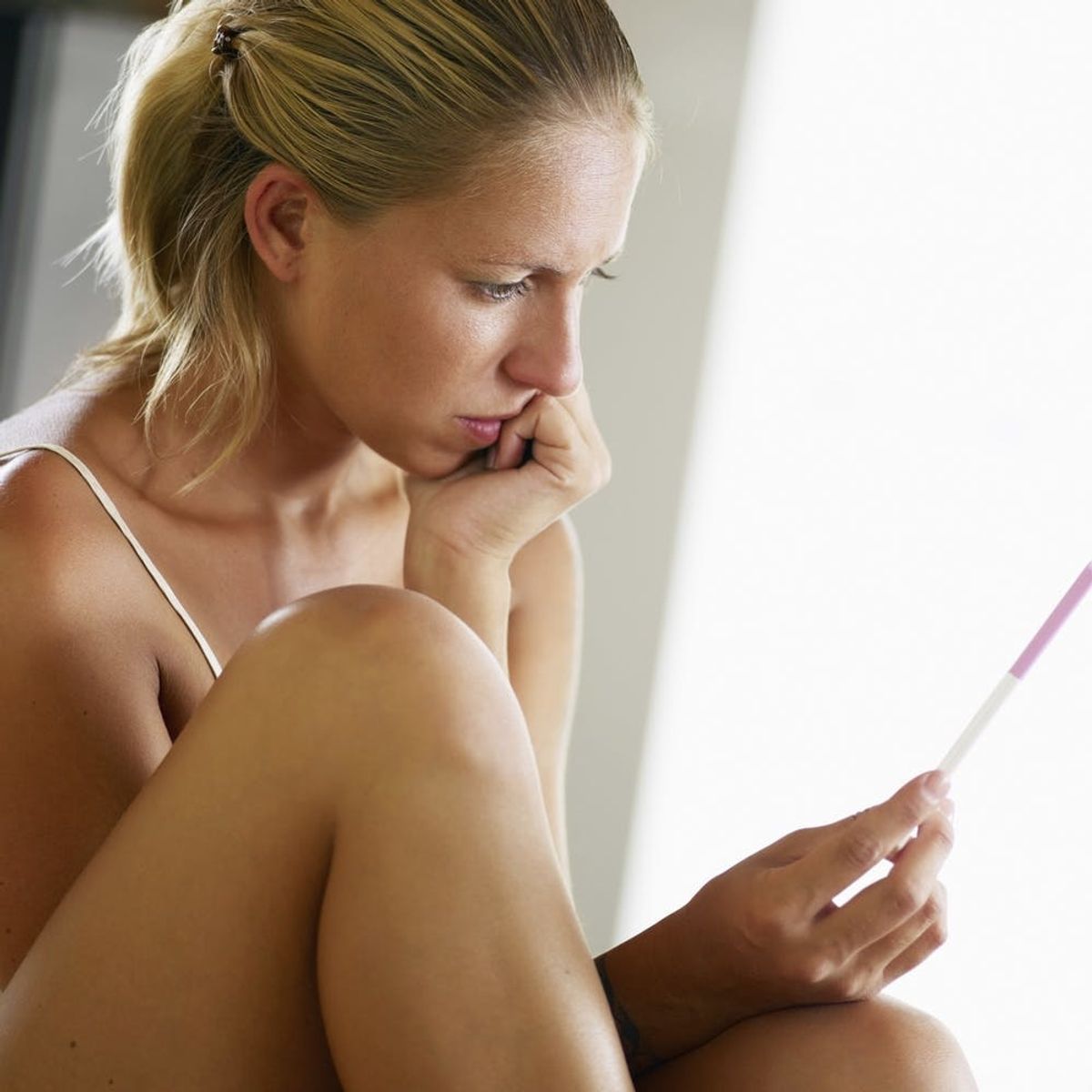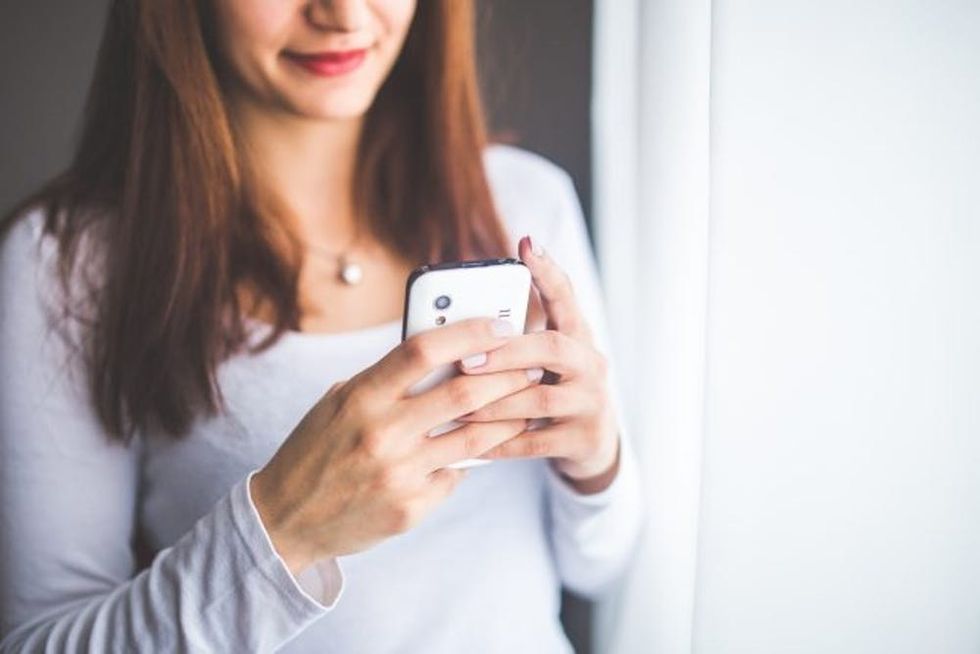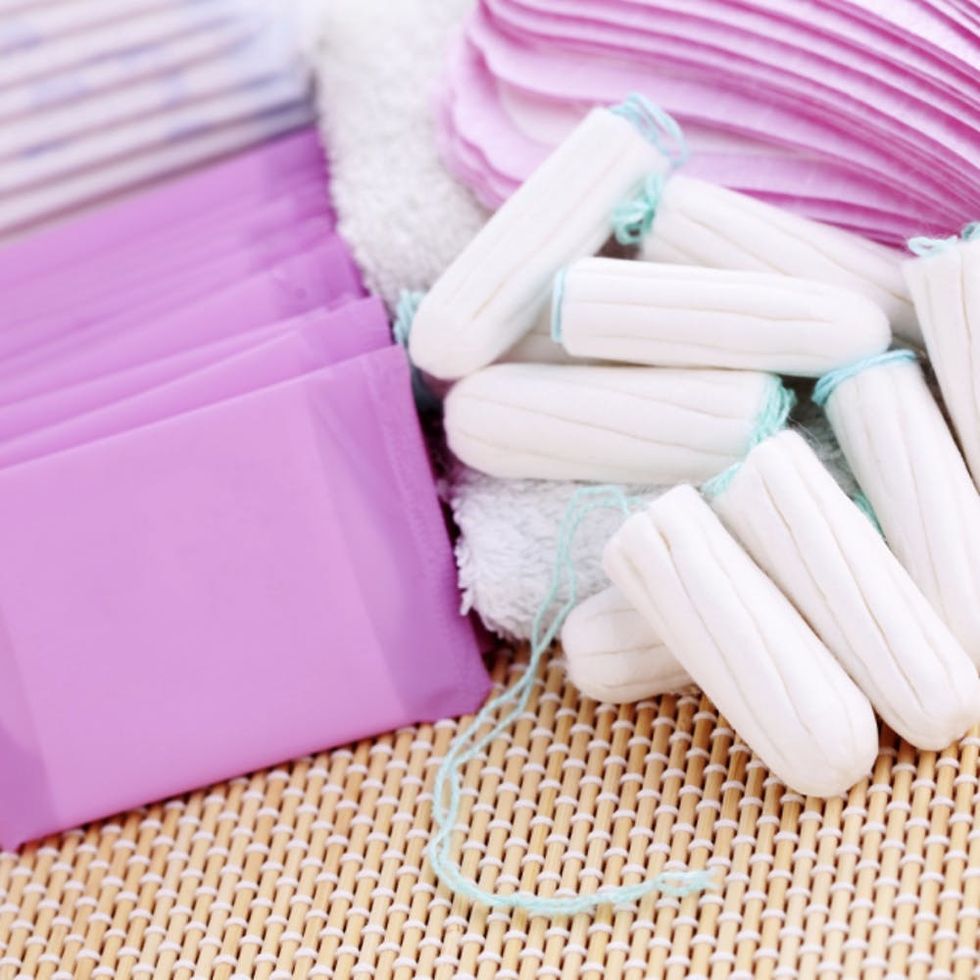Period tracking apps just don’t work very well.
Here’s Why You Shouldn’t Rely on Your Period Tracking App

Period tracking apps have been popping up all over the place in the last several years. From Clue to Period Tracker, women all over the world are using their smartphones to log their menstrual cycles to get a better handle on their general health, or to avoid or achieve pregnancy. But as popular as these apps are, science says they just don’t work very well.

A new study from the University of Washington uncovered a slew of problems with period tracking apps, mainly that they weren’t very accurate in predicting periods, and that these apps make a lot of assumptions about sexual orientation and partners. To conduct the study, researchers mined data from 2,000 reviews of period tracking apps, surveyed 687 app users, and interviewed 12 users about why they started using an app to track their period to begin with, according to a press release.
Close to half of the app users surveyed used the apps for multiple reasons: “to understand their body and reactions to different phases of their cycles; to prepare for their periods; to achieve or avoid pregnancy, or to inform conversations with healthcare providers.” But by and large, most of those surveyed said the apps failed them in basic ways, though overall the apps were more effective than tracking periods on paper.
In particular, the researchers found app users with irregular periods were unhappy with their experience tracking their periods. “Stress, exercise, Plan B, and many other things can also impact cycles,” Daniel Epstein, a doctoral candidate at the University of Washington and lead author of the study, tells Brit + Co. But most of the apps did not allow users to make corrections when their period was irregular for any reason. Because of this, Epstein says, the app creates a “waterfall effect” of wrong predictions.
Independent researcher Nikki Lee told the University of Washington in the study press release that there’s one big problem with apps only working reliably for people with really regular periods: These people have less of a need to track their periods with an app in the first place. It’s those who have irregular periods or sometimes have exceptions in their cycles that are most in need of tools to help them track.

Challenges also arose for women who were using the apps for the purpose of getting pregnant or making sure they avoided getting pregnant. Most of the apps didn’t allow for users to customize whether or not they were trying to avoid or achieve pregnancy, which presents major dangers for teenagers. The study found that teen girls rely heavily on period tracking apps as a major form of birth control.
Another big problem was that many of the apps assumed that users had male partners, and also that everyone who used the app was a woman. These are obviously huge issues for people who get periods but don’t date men, and for people who use these apps but aren’t female-identified, including trans men.
Katherine, a 31-year-old mom of a toddler, started using a period tracking app a few years ago when she and her wife wanted to conceive. She tells Brit + Co that her period was pretty regular, so she figured the app would make her life easier while she was trying to get pregnant, since she wouldn’t have to track her fertility on paper.
Echoing concerns of study participants, Katherine says the app was very hetero-normative. “The app asked if I was having sex,” she tells us, but assumed that “sex” meant she was having sex that could result in pregnancy.

She also says that the app was lacking in diverse methods of tracking fertility. The app she tried only “tracked basal body temp, period, and those [at-home] ovulation predictors.” This didn’t work well for Katherine — basal temperature can be impacted by many things besides ovulation, so recording her temperature in the app didn’t help predict fertility. Katherine didn’t use the app for very long — in fact, she doesn’t even remember what it was called — and it was only after she stopped using it that she was able to get pregnant.
Unreliable data wasn’t the only problem users reported. The study’s press release states that there were “across the board” complaints about the look of the apps. Study participants said that these apps featured too much pink and flowery imagery, showing the apps are playing pretty hard into very old and stale stereotypes about what women like. Not only is this not what users necessarily want to look at when they open an app, but study participants felt that the bright pink and floral aesthetics should be swapped out for a more discreet interface. Makes sense: Most people probably don’t want to draw attention to their period tracking app when they’re using it on the go.
Overall, these apps need to have a lot more options for users if they’re going to be helpful. Ditching the pink and the flowers will go a long way too.
Do you have thoughts about a period tracking app you’ve tried? Tell us about it on Twitter @BritandCo.
(Photos via Pexels + Getty)











